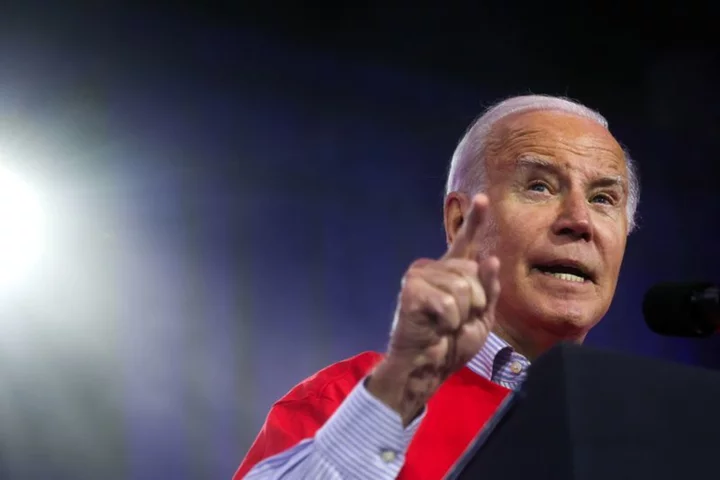FRANKFURT Euro zone inflation tumbled far more than expected this month, a challenge to the European Central Bank's narrative that price growth remains stubborn and likely fuelling bets on early spring rate cuts in defiance of the bank's explicit guidance.
Consumer price growth in the 20 nations sharing the euro currency dropped to 2.4% in November from 2.9% in October, well below expectations for 2.7%, as nearly all items - with the notable exception of unprocessed food prices - were a drag.
Even underlying price pressures eased more quickly than forecast, with inflation excluding food and energy, closely scrutinized by the ECB, dipping to 3.6% from 4.2% on a big drop in services prices.
The rapid inflation slowdown puts the ECB and investors on a collision course as the two appear to see greatly different paths ahead, both for consumer prices and ECB interest rates.
The ECB argues that underlying dynamics are more stubborn than they appear and inflation will actually come back above 3%next year, only hitting the central bank's 2% target in late 2025, partly due to rapid nominal wage growth.
This will require the bank to hold its deposit rate at a record-high 4% for an extended period, and even Yannis Stournaras, the dovish chief of the Greek central bank, sees no cut before mid-2024.
Fresh data out on Thursday showing unemployment holding at a record-low 6.5%, despite an economic contraction, would appear to support this argument as it underlines just how tight the euro zone's labour market is.
But investors are increasingly ignoring ECB President Christine Lagarde's explicit guidance for steady rates for several quarters, pricing in a combined 115 basis points of cuts for the next year, with a first move by April fully priced in.
A key reason for the discrepancy is that the ECB's own projections have a poor track record. It has been forced several times in recent years to abandon its own guidance after first pushing back on market expectations.
Economists say that growth is weaker than the ECB expected, the labour market is softening and credit demand has evaporated, all pointing to rapid disinflation.
Some economists argue that modelling current inflation is exceptionally difficult because corporate profits are the main driver, not wages as in normal bouts of rapid inflation.
"Because profit-led inflation is a relatively rare event, focused on the end of supply chains and dependent upon narrative economics, mathematical models are not terribly good at forecasting it," Paul Donovan at UBS Global Wealth Management said.
"This means that not only does inflation slow, but the pace of the slowdown tends to surprise consensus forecasts."
(Reporting by Balazs Koranyi; Editing by Catherine Evans)









